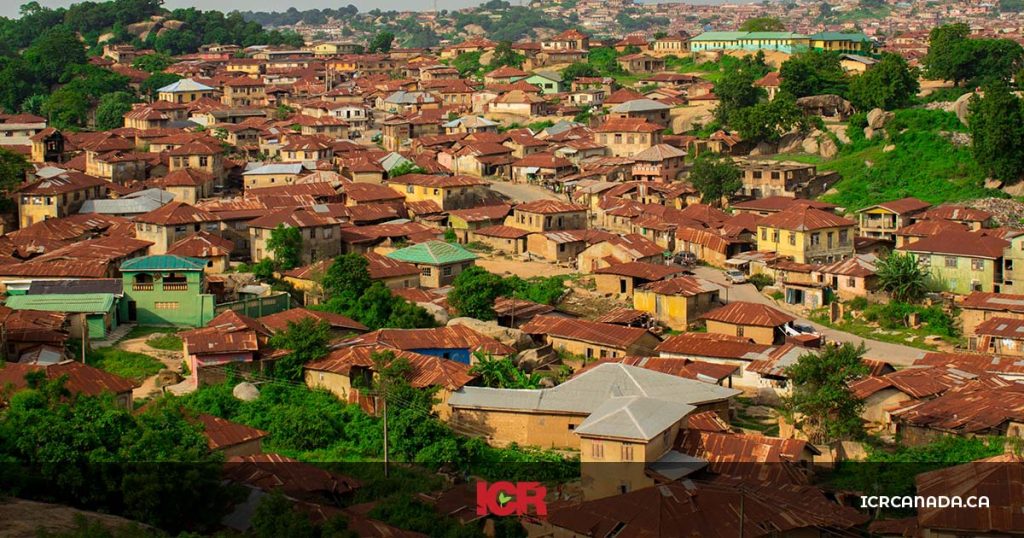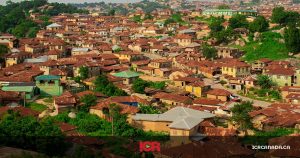50 Christians Massacred in Ayati Nigeria: A Nation in Crisis

A Brutal Attack in Ayati
On August 8, 2024, the predominantly Christian village of Ayati, located in Ukum County, Benue State, Nigeria, was the scene of a horrifying massacre. At least 50 Christians massacred in Ayati Nigeria in what local reports describe as an attack allegedly carried out by Fulani herdsmen in collaboration with a criminally motivated gang. The assault, which took place around 5:00 p.m., has left the local community devastated and underscores the ongoing persecution of Christians in Nigeria.
Tivta Samuel, a resident of Ayati, confirmed the tragic event, stating, "Suspected herdsmen militias killed over 50 Christians in Ayati village." Another local resident, Abraham Waroh, corroborated this account, identifying the attackers as "Fulani herdsmen militias," as reported by Christian Daily International-Morning Star News. The violence, according to these accounts, stemmed from a land dispute, with criminals allegedly "selling" the villagers' land to the herdsmen.
The Origins of the Conflict
The roots of the violence in Ayati can be traced to a land dispute that escalated into a deadly confrontation. Shima Ayati, a local resident and former gubernatorial candidate, provided insight into the situation. After the herdsmen began grazing their cattle on the disputed land, the farmers lodged complaints with government authorities. In response, the government dispatched a state security outfit that chased the herdsmen away and burned their tents. This action, however, only served to inflame the situation.
"They claimed that the bandits sold the land to them, and they went and met the bandits. So the herdsmen and bandits went to the village and carried out a massacre," Shima Ayati explained. The destruction of their property by security forces reportedly led the herdsmen to collaborate with the criminal gang in a retaliatory massacre, leaving the villagers defenseless and resulting in the loss of 50 Christian lives.
A Pattern of Violence
The massacre in Ayati is not an isolated incident. In recent months, other Christian communities in Ukum County have also faced similar attacks. On July 21, Fulani bandits attacked the Sankera community, killing three Christians, including a very young boy. Local resident Clement Kolough described the attack: "The Fulani bandits numbering 9 rode on motorcycles, armed with guns and machetes, and attacked the people in the Sankera community, killing two adults and a boy who was 6 years old."
Earlier, on July 3, Fulani herdsmen attacked Ayati and Borikyo villages, resulting in the deaths of 11 Christians. These repeated assaults highlight a disturbing pattern of violence against Christian communities in Benue State and other regions of Nigeria.

The Role of Security Forces
Despite the severity of these attacks, the response from Nigerian security forces has been inadequate. While they have occasionally intervened to disperse the herdsmen, as in the case of Ayati, they have often failed to provide sustained protection for vulnerable communities. Catherine Anene, a spokesperson for the Benue State Police Command, confirmed the attack on Ayati but indicated that further information was still pending. She acknowledged the frequent bandit activities in Ukum, Logo, and Kastina-Ala local government areas, stating, "Police personnel and those of other security agencies were deployed to the affected areas, and the bandits were successfully dislodged in operations by security personnel."
However, the dislodgment of bandits is not sufficient to ensure the safety of these communities. The lack of a consistent and robust security presence leaves Christians in these areas exposed to further violence.
The Broader Context of Christian Persecution in Nigeria
The attacks in Ayati and other communities in Benue State are part of a broader pattern of persecution against Christians in Nigeria. According to Open Doors' 2024 World Watch List, Nigeria remains one of the most dangerous countries in the world for Christians, with 4,118 people killed for their faith between October 1, 2022, and September 30, 2023. The country also recorded the highest number of Christian kidnappings, with 3,300 cases reported during the same period.
While not all Fulani herdsmen subscribe to extremist views, some have adopted radical Islamist ideologies similar to those of Boko Haram and the Islamic State West Africa Province (ISWAP). These extremist groups target Christians and their communities, seeking to impose Islamic rule in regions where Christians are the majority.
Christian leaders in Nigeria believe that the herdsmen's attacks are driven by a desire to seize Christian lands and freeholds, furthering their aim of expanding their influence and control. This situation is exacerbated by the challenges of sustaining large, healthy herds and livelihoods in the region's harsh, often desert-like conditions.
The ongoing violence against Christians in Nigeria is a crisis that demands urgent attention from both the Nigerian government and the international community. The protection of religious freedom and the safety of vulnerable communities must be prioritized to prevent further loss of life and to uphold the rights of all citizens, regardless of their faith.
